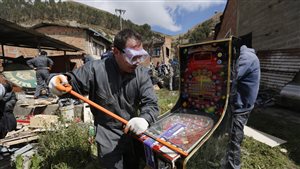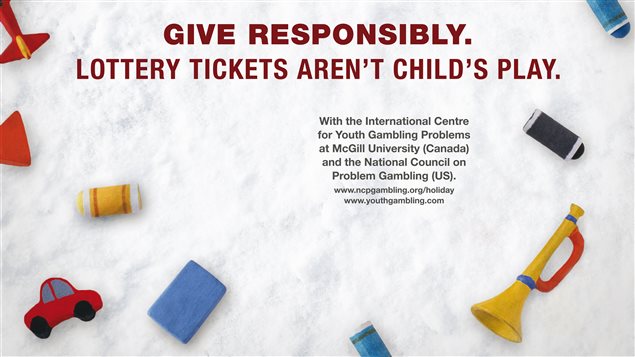The International Centre for Youth Gambling Problems and High-Risk Behaviours at McGill University joins the annual international campaign to discourage under-age gambling.
ListenAlong with the U.S. National Council on Problem Gambling and several lottery corporations around the world, the McGill centre hopes to raise awareness of the effect lottery tickets and scratch tickets, given as gifts, can have on some children and adolescents.
“If you’re risking money in order to win money, then that’s by definition, gambling.”
Professor Jeff Derevensky is a child psychologist, professor in the Faculty of Education, and co-director of the International Centre for Youth Gambling Problems and High-Risk Behaviours. He says between 2 and 4 per cent of young people are problem gamblers. This statistic is higher than the adult average which is around 1 per cent.

The campaign wants to stress that gambling, even in these seemingly benign forms, is an adult pass-time. Research has revealed that those who receive tickets early in life, tend to start gambling earlier, some as young as 9 or 10 years of age.
Research has shown there is a correlation between the age someone begins gambling, and gambling as a problem later in life. Like some of the other pleasures and responsibilities of adulthood, such as alcohol or voting, lottery and scratch tickets can wait.







For reasons beyond our control, and for an undetermined period of time, our comment section is now closed. However, our social networks remain open to your contributions.